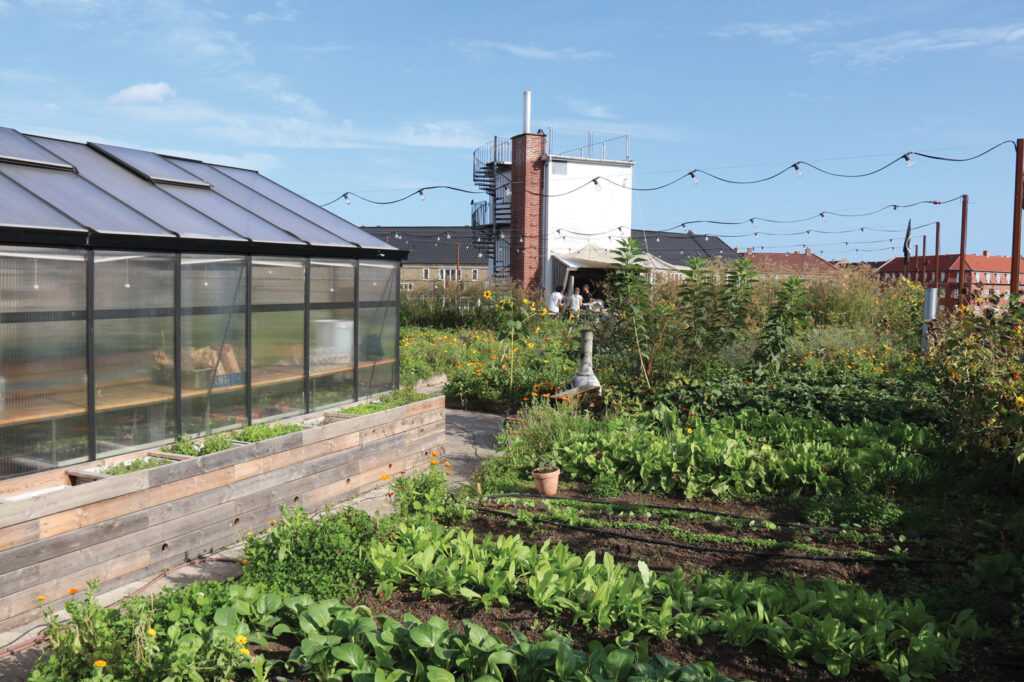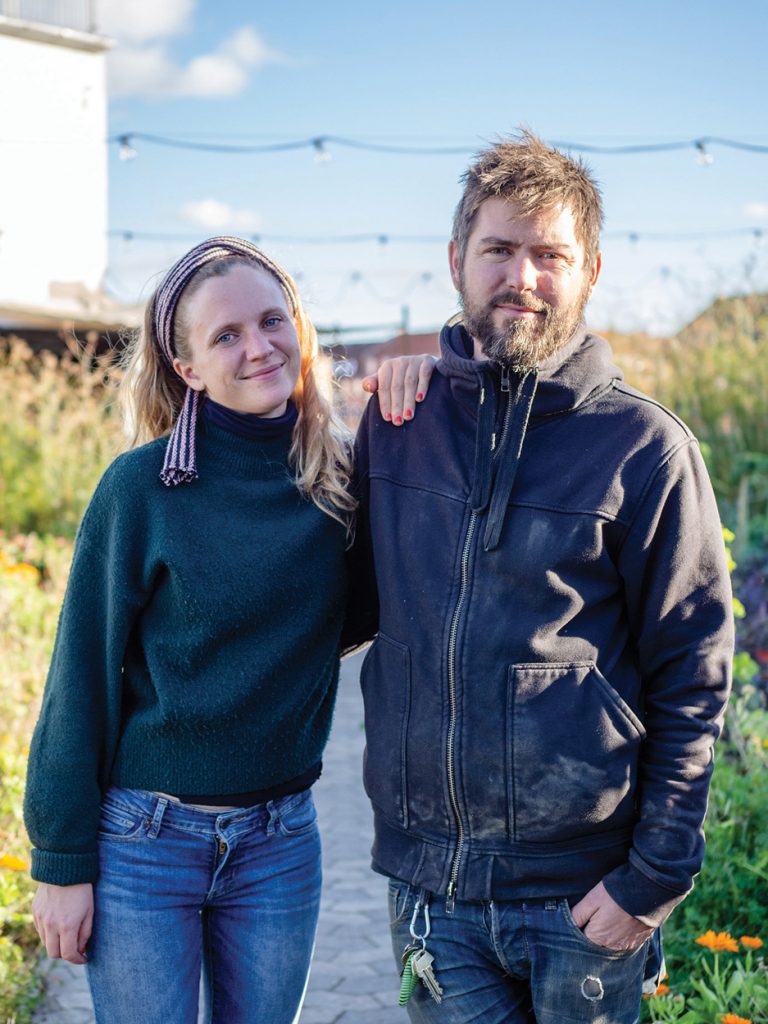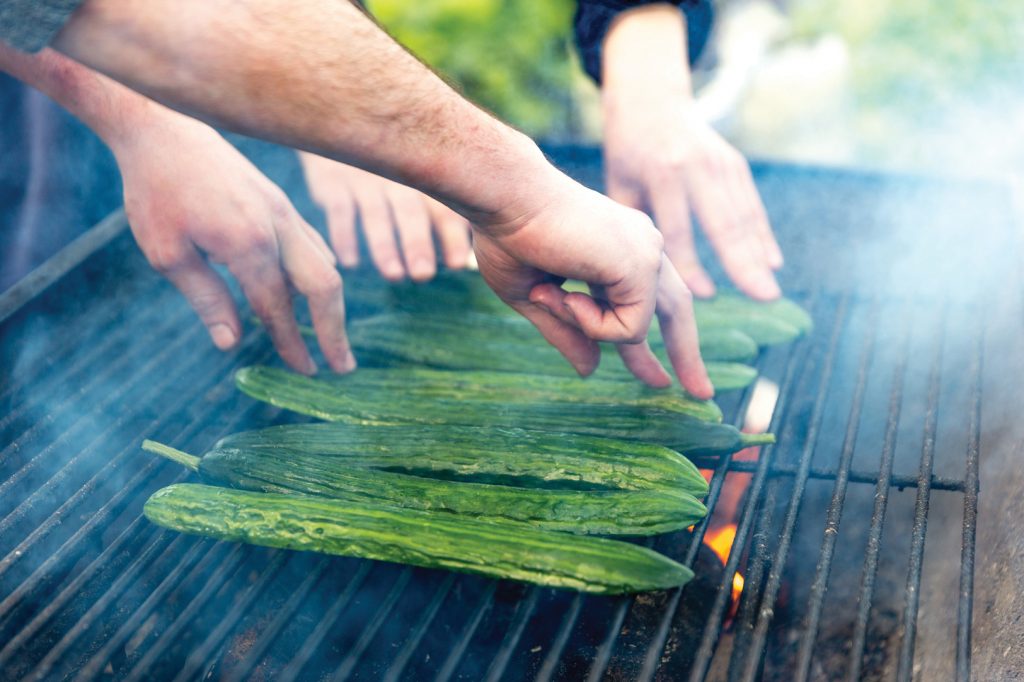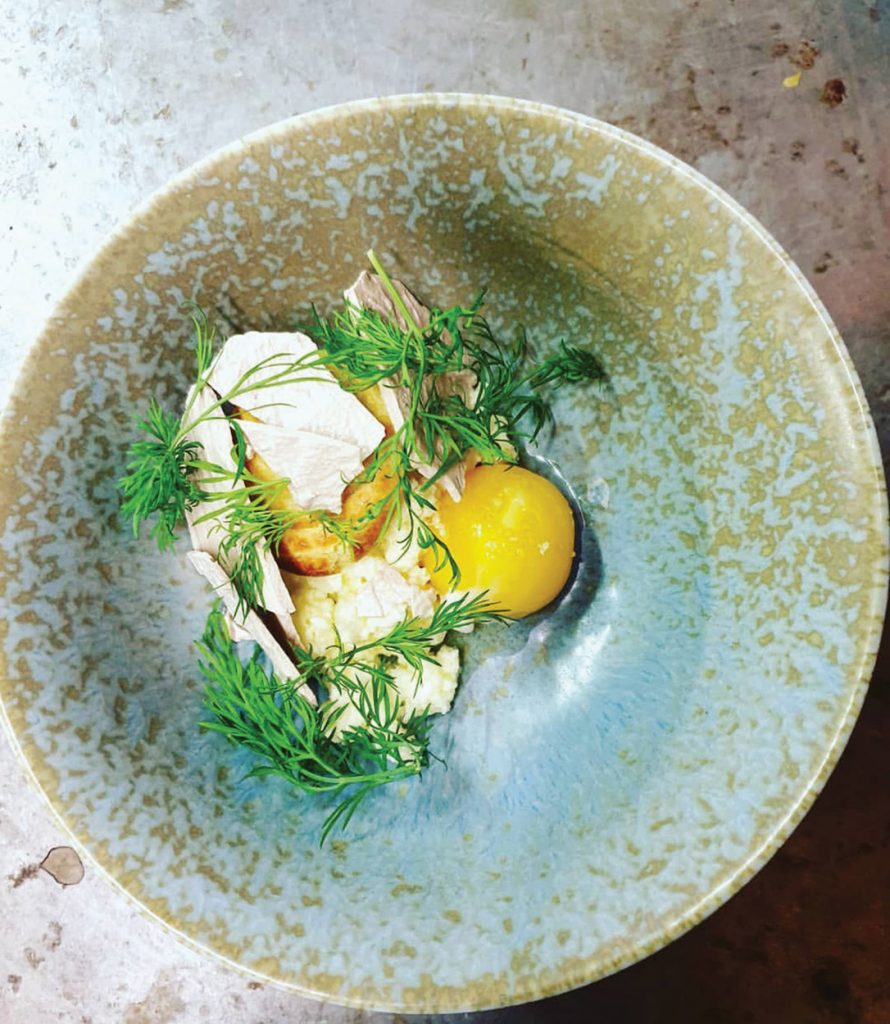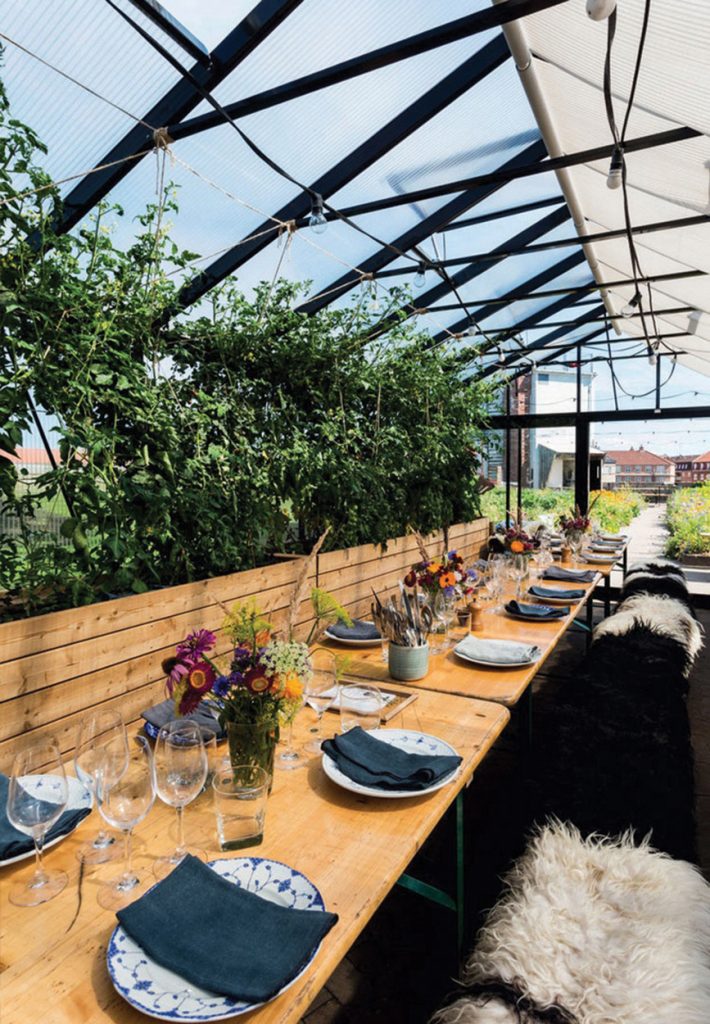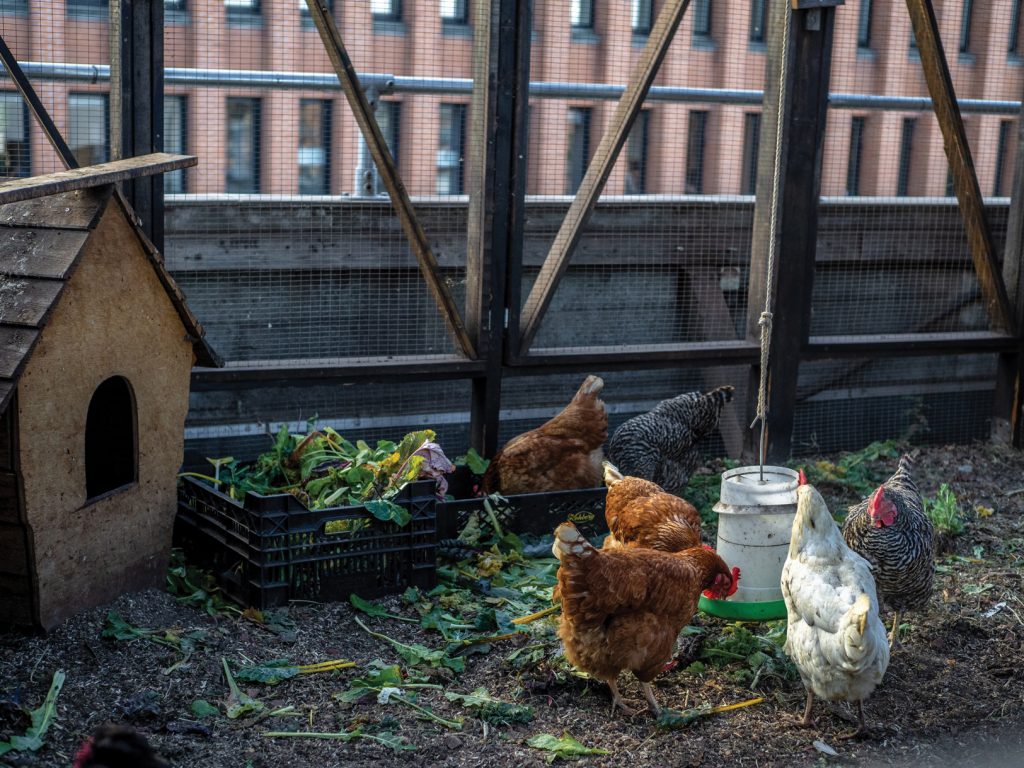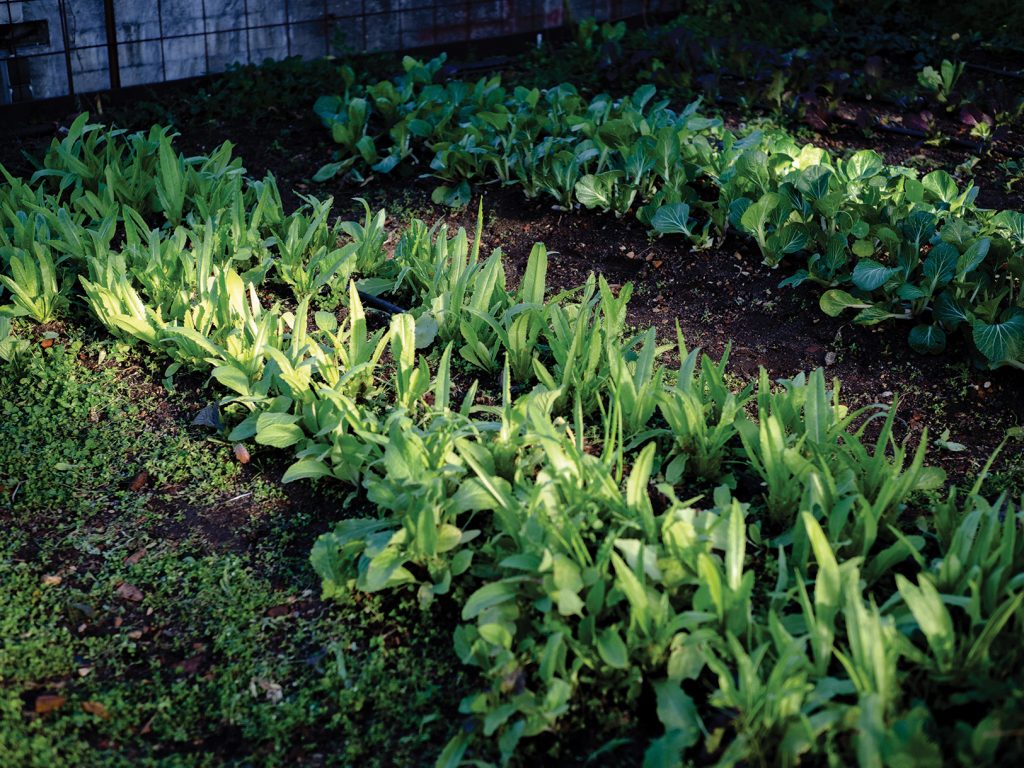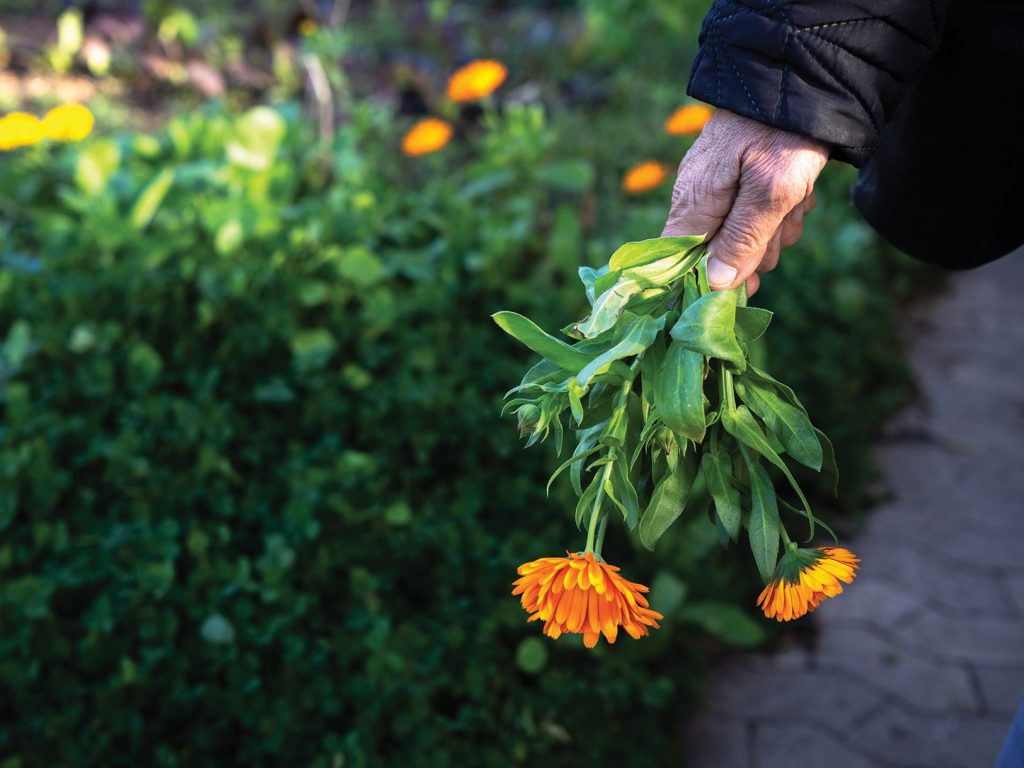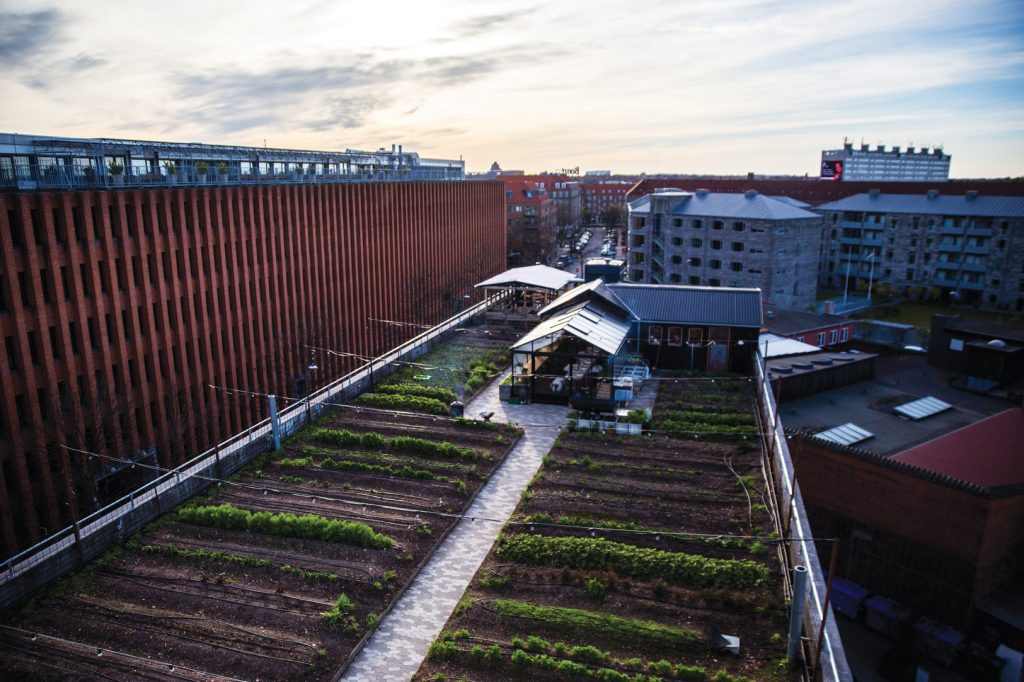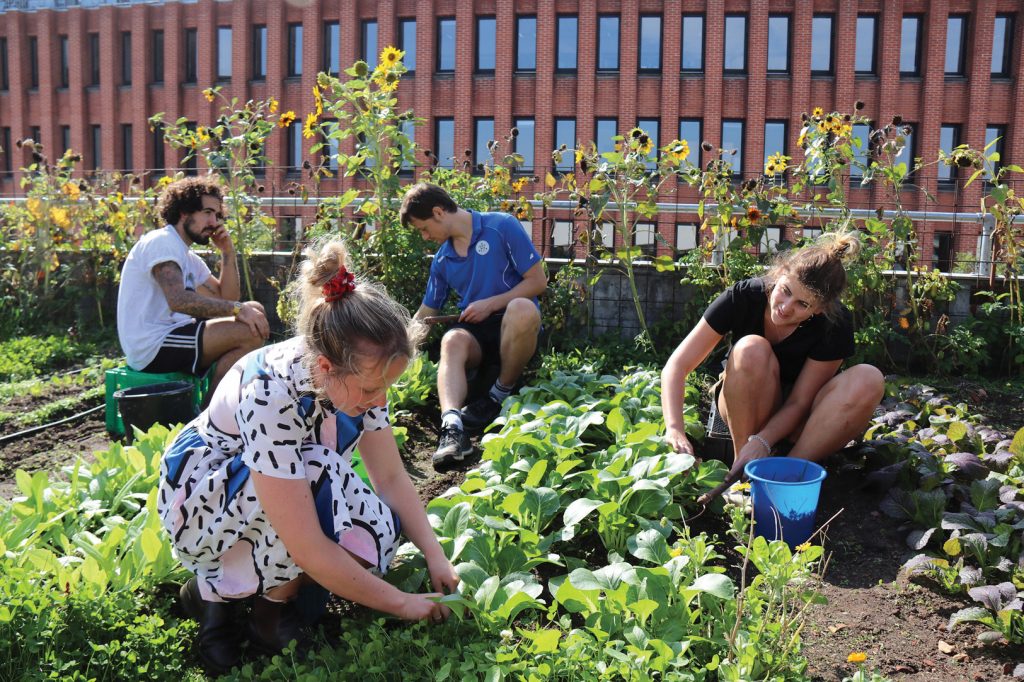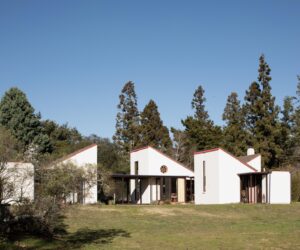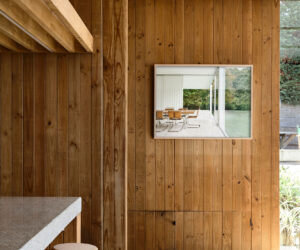Turning Point
ØsterGRO, Denmark's first rooftop farm sets a global example.
It’s Wednesday and the farm is bustling. Growing season means that there is much work to do and today, alongside the permanent staff, there are over twenty volunteers. Everyone is busy: weeding, harvesting vegetables, washing salad leaves, weighing and portioning crops for members’ veg boxes, feeding and cleaning the chickens, tending to the bees … the list is endless but the enthusiasm is infectious.
ØsterGRO is a community farm located in Denmark. Actually, it is a farm within the heart of the city of Copenhagen, and to be precise, the farm sits high on the roof of a large industrial building, which was once used as a car auction house. At 600-square-metres in area, the rooftop is home to two large “fields” of organically grown vegetables. There are also the aforementioned chickens and bees, plus a large greenhouse and even a kitchen and rooftop restaurant named Gro Spiseri.
This is Denmark’s first rooftop farm. Working in partnership with Seerupgaard Farm, located on the southern outskirts of the city, ØsterGRO produces enough vegetables to fill 40 vegetable boxes each week for its Community-supported Agriculture (CSA) members, plus enough extra to supply the freshest organic vegetables and herbs to its own restaurant.
It was the brainchild of three young idealists, Kristian Skaarup, Livia Urban Swart Haaland and Sofie Brincker. Inspired by the famous Brooklyn Grange Farm in New York, they founded ØsterGRO in 2014. “We visited Brooklyn Grange in 2011,” says Skaarup, “and attended the American Community Gardening Association conference, too.”
Back in Denmark, the trio worked with their environmentally-minded municipality to find the rooftop site. The building, once a car auction house, was perfect: its reinforced structure, built to store cars on all levels, meant that loading the roof with 100 tonnes of soil and allowing crowds of people access at any one time would not be a problem. Skaarup explains the innovative garden bed solution that he and his fellow founders have developed. “First, on the bottom, is a root blocker, followed by a drainage layer of recycled plastic, shaped like egg trays that can store water. Then there is a felt layer that roots can penetrate to reach the stored water and finally the soil. It is simple but very successful.”
The success of the garden bed design is matched by the attention and accolades that ØsterGRO has garnered in Denmark and internationally. The farm receives over 20 000 visitors annually, it has been featured in many travel and lifestyle programs and there are waiting lists both for seats at the restaurant and the CSA food boxes. Additionally, during the June-to-November growing season, volunteers number from 20–30 every Wednesday. Ranging from students to international travellers and retired locals, they all come to get dirt under their fingernails, feel the rural vibe in the middle of Copenhagen, and share the positive energy – plus a wonderful communal lunch, cooked using food grown on the roof.
In winter the core staff look after the farm, tending to the chickens and bees, harvesting seeds, turning the compost, maintaining soil and over-wintering crops.
“People are very surprised [by] what we are doing up here when they first visit,” says Skaarup, “but they see what is achievable and are very inspired. For me, I want to see more of this kind of positive action in our cities. There will be challenges, like soil contamination if at ground level or structural issues with buildings for elevated projects, but all can be overcome with hard work and perseverance.”
And, as if to prove the point, Skaarup and fellow ØsterGRO founder Livia Urban Swart Haaland plan to open a second rooftop farm in the meat packing district of Copenhagen. “We already have some funding and an engineer calculating the structural upgrades required to make the proposed building suitable,” says Skaarup. “Permissions are also being sought from the local municipality, and, if all goes well, we hope to open next spring.”
ØsterGRO farm and its rooftop restaurant, Gro Spiseri, are firm favourites on the tourist trail in Copenhagen but Skaarup would like to see them become the norm, rather than a novelty. He dreams of a day when every urbanite can grow and eat food that is truly local to them. He wants to see more buildings with green productive roofs; more rainwater being utilised, rather than running into the storm sewers; and fewer miles tallied from farm to plate. Skaarup and ØsterGRO want everyone to fight climate change and they believe we can do it one vegetable patch at a time.
